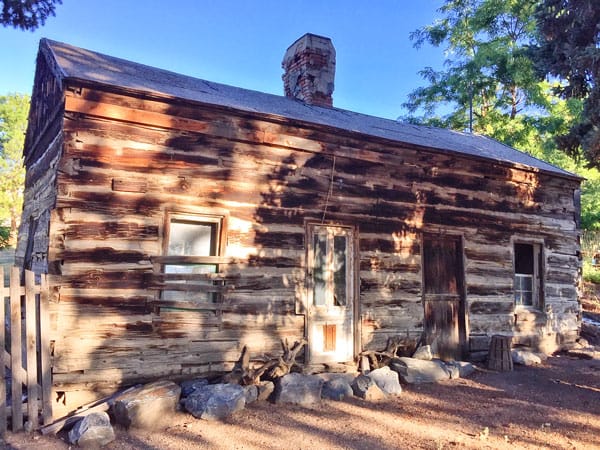Sylvester Richardson’s hard-knock life

Article and photo by Joe Gschwendtner

Because of the universally recognized beauty of Elizabeth Richardson, the home, the hostel and the Bennet Springs Post Office from 1862-1865, came to be known far and wide as Pretty Woman Ranch.
Sylvester Richardson was a driven man. Raised in New York’s Catskill Mountains, he worked in the family vineyard near the Hudson River. No vintner he, and in his 30s dreaming bigger dreams, Richardson migrated west, first to Wisconsin. There he attempted to capitalize on his horticultural experience by starting a nursery.Unfortunately, lacking critical skills and the victim of bad weather, he was unsuccessful.
What with the 1859 excitement in Denver and surrounds, he joined the crowd, but as a grocer in Denver. Good move; the miner’s needed supplies. A bit short on credit savvy, he was talked into opening an account for a local outfitter to the mining industry. This was poor judgement, as the debtors were hucksters using his provisions to finance their escape from their own creditors.
In 1861, now married to the former Elizabeth Bowers of Wisconsin, the Richardsons moved 25 miles south, settling on the west side of the first Territorial Road (Daniels Park Road opposite the 16th hole of The Ridge golf course). Their first home was a dugout cabin of 8×10 feet. Recognizing the possibilities, and with the birth of their child named “Denver,” the couple built a larger facility that would serve as a home, hostel, and the Bennet Springs Post Office from 1862-1865. Because of the universally recognized beauty of Elizabeth, the home came to be known far and wide as Pretty Woman Ranch. Lodging and quartering horses and feeding and housing visitors was sufficiently profitable to where the Richardsons set aside $2,000, a handsome sum in those years.
Having profited from the hospitality business, Sylvester sought more and acquired a herd of blood cattle. His tenure as cattleman turned out to be brief. Within months of buying the animals, it was determined by local authorities that the cattle he bought were rustled when the rightful owner produced the proper documents of ownership. At this juncture in life, some men would have called it quits, but again Sylvester rolled the dice by acquiring a stock of sheep which had been driven west from the Missouri River. Mountain mutton was in short supply, the owner had the proper paperwork and Sylvester launched yet another endeavor.
In 1864, the Territorial Road was re-routed further west along Plum Creek. The Ranch, while still widely known, had lost its visibility and business rapidly fell off. Apparently the sheepish bet he made to supplement his income provided meager returns. So, just as Lady Luck left him again, so did his wife Elizabeth, and they were divorced in 1868. She returned to Wisconsin with Denver in tow and remarried.
Sylvester was not done however. Moving west once more, he became the driving force of an expedition into the Gunnison River Valley, and eventually settled a place named Richardson’s Colony in 1874. Today he is known as the founder of Gunnison County.
Wildcat Lore
As it turns out, The Connection serves residents of the Wildcat Mountains, a name pioneers and historians gave to the high country paralleling I-25 from Highlands Ranch and Lone Tree south to Castle Rock. Since the first territorial road (Daniels Park Road) bisected our mountains, there was no shortage of colorful characters parading through what are now private properties on the ridges of Douglas County. We bring these grizzled and gutsy settlers alive again, vividly sharing their stories of grit and achievement in these Castle Pines.